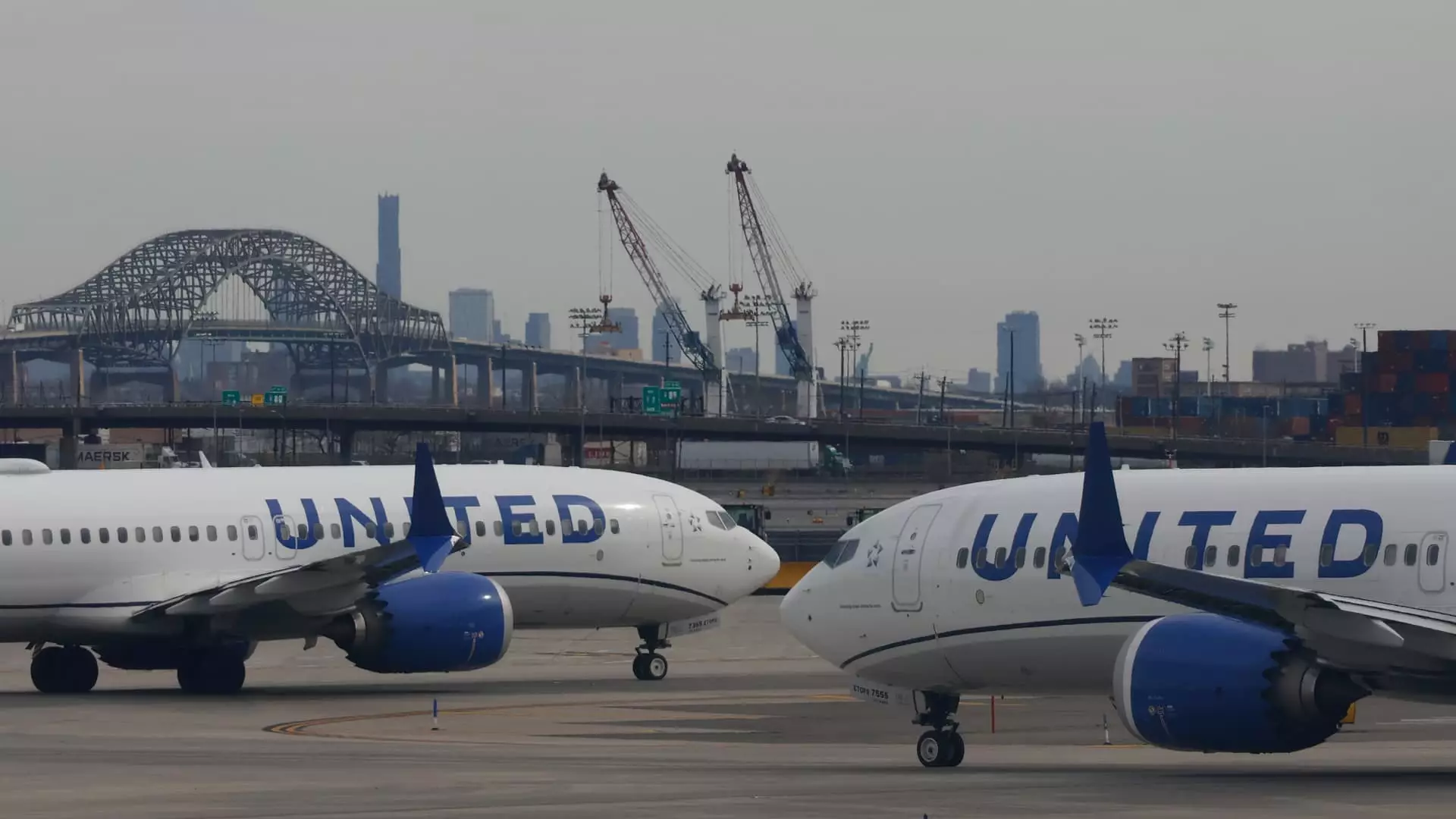In a striking move that underscores the challenges of modern air travel, United Airlines announced the cancellation of 35 round-trip flights per day at Newark Liberty International Airport. This decision follows a week plagued by intolerable delays, leaving thousands of passengers stranded for hours. The airline’s CEO, Scott Kirby, pointed to two major culprits: chronic understaffing in air traffic control and the Federal Aviation Administration’s (FAA) outdated technology. While this incident reveals deeper systemic issues, it also raises troubling questions about the corporate responsibility of airlines and the government’s commitment to air travel safety and efficiency.
The Alarming Human Cost of Flight Disruptions
The impending cuts represent about 10% of United’s daily operations at Newark—a hub that has already been struggling with operational inefficiencies. More than 300 flights were delayed just last week, compounding an absurd total of over 1,400 delays and cancellations, as tracked by FlightAware. This chaos isn’t merely an inconvenience; it directly impacts the lives of countless travelers—business professionals missing crucial meetings, families unable to reach loved ones during significant times, and even the psychological toll of uncertainty in an already stressful environment. A flight delay isn’t just about waiting at the airport; it often means reconnecting flights, rescheduling appointments, and enduring frustration that can last far beyond the trip.
Fingers Pointed: Who is to Blame?
Kirby’s declaration lays blame squarely on the FAA and the state of its air traffic control facilities. During a period of escalating travel demands, it is alarming to see that air traffic controllers at Newark are overworked—20% reportedly walked off the job due to recent equipment failures. This scenario paints a grim picture, not only of operational readiness but also of morale within a workforce perceived as undervalued and overstressed. Furthermore, Kirby’s calls for tighter capacity control echo a sentiment felt nationwide; everyone from travelers to airline executives intuitively understands that an unreliable air traffic system is failing both consumers and the industry.
Historical Context: A Long-standing Issue
The current crisis isn’t an isolated incident. The FAA has been aware of the chronic understaffing at Newark for years, with some suggesting that airline route planning was uninformed—relying on hope rather than operational realism. The past actions of the FAA—shifting controller resources away from congested New York to Philadelphia—illustrate shortcomings in a broader strategy to address the growing air travel demands. When a system is fundamentally incapable of evolving to meet increased pressures, it signals not just a logistical problem, but a systemic failure within aviation governance.
Time for Change: Demand for Infrastructure Reform
While Secretary of Transportation Sean Duffy has expressed the need for a transformative overhaul of the air traffic control system, words must be backed by decisive action. The necessity for investments in modern technology cannot be overstated. Outdated systems are not just a nuisance; they are a hazard that jeopardizes public safety and threatens the livelihood of those in the airline industry. A robust air traffic control infrastructure is a foundational element of any successful airline operation, and the status quo simply isn’t acceptable anymore.
The Customer Comes First: United Airlines’ Response
In light of these disruptions, it’s commendable that United Airlines plans to waive change fees for affected customers. In an industry where consumer loyalty is fragile, such measures may restore some degree of goodwill. However, this gesture must be more than a band-aid approach; United needs to consider the long-term implications of operational reliability and develop strategies to ensure that the customer experience doesn’t deteriorate into futility.
The fallout from these cancellations doesn’t just mark a blip on the radar screen; it represents a critical opportunity for airlines and regulatory bodies to come together and rethink processes that are clearly failing both the industry and consumers alike. The impact of these systemic failures will continue to ripple through our economy if we do not address them with compassion and urgency.


Leave a Reply